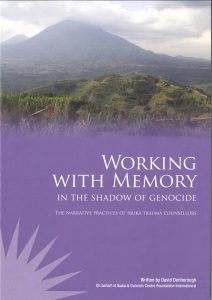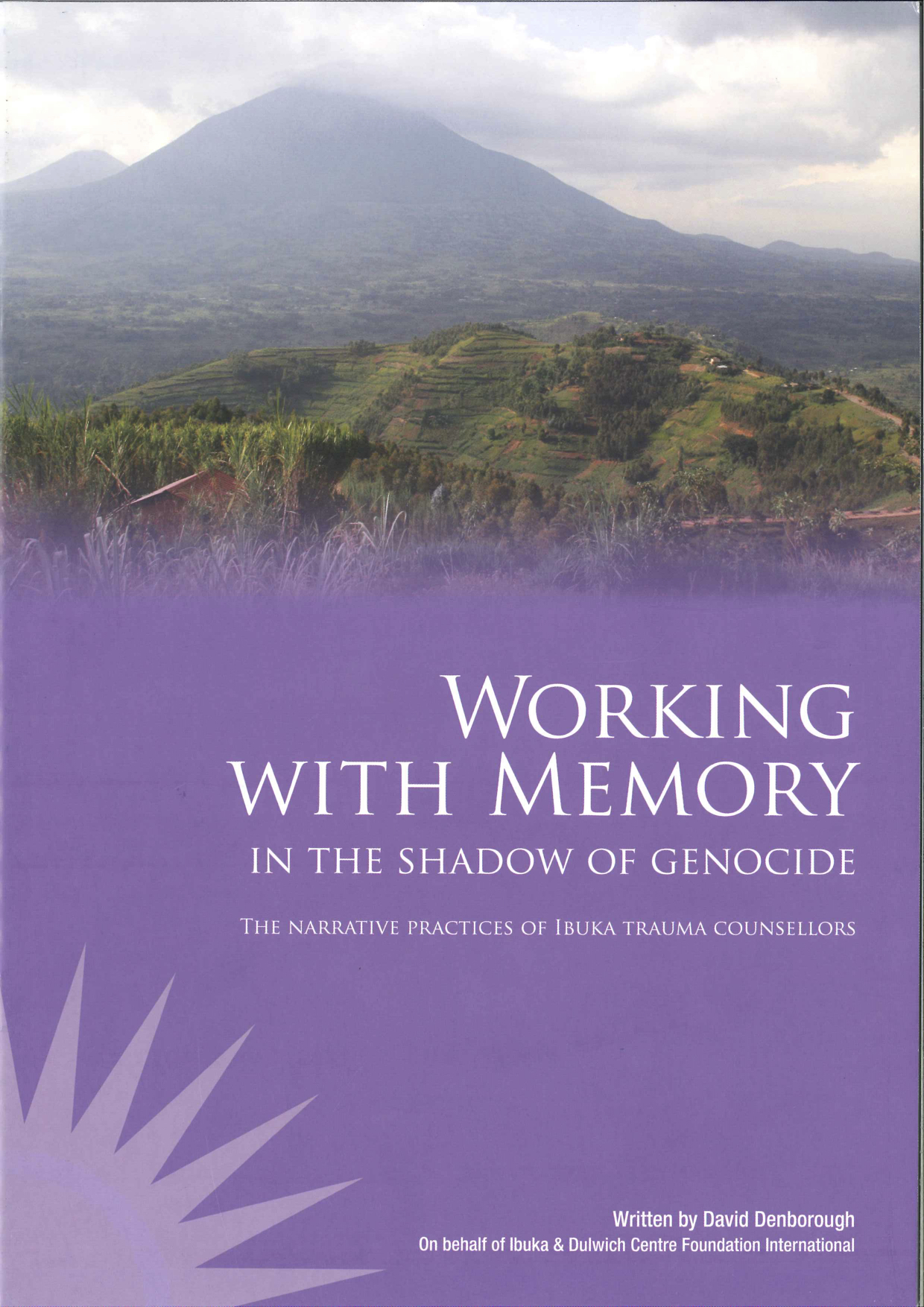Working with memory in the shadow of genocide: The narrative practices of Ibuka trauma counsellors
$22.00
In 1994, the genocide in Rwanda claimed over one million human lives. Today, Ibuka, the national survivors’ association of Rwanda, has developed ways to respond. The Ibuka trauma counsellors have found ways to heal memories in the shadow of genocide. Together – and through their formal partnership with the Dulwich Centre Foundation International, based in Australia – they have developed local, innovative, culturally-appropriate methodologies, drawing on principles and practice of narrative therapy and community work.
Description
 In 1994, the genocide in Rwanda claimed over one million human lives. Today, Ibuka, the national survivors’ association of Rwanda, has developed ways to respond. The Ibuka trauma counsellors have found ways to heal memories in the shadow of genocide. Together – and through their formal partnership with the Dulwich Centre Foundation International, based in Australia – they have developed local, innovative, culturally-appropriate methodologies, drawing on principles and practice of narrative therapy and community work. These approaches have been used in communities and contexts as diverse as child soldiers in Sudan, migrants and refugees in Canada and Australia, and survivors of natural disasters from Bangladesh to Burma, from Haiti to Bosnia. This publication documents the unique forms of therapeutic and collective practice that Ibuka workers are developing. It contains the stories of this work and its outcomes; the principles they are employing; examples of the methodologies; and ideas for how workers and organisations in other contexts can develop their own effective practices. Also included in this publication are innovations in narrative practice relating to multiple storylines of memory; personal memory/social memory; sharing the ‘problem of memory’, and ensuring the survival of ideals. This publication will be of immediate, practical value for: • social and community workers • aid and development workers and organisations • policy-makers and funders interested in supporting locally-developed, culturally-appropriate programs which are both highly effective and sustainable • doctors, therapists, teachers, volunteers … and anyone else interested in ways in which communities which have experienced hardship and trauma can both heal painful memories, and build communities of resistance and resilience. Working with memory in the shadow of genocide</em> is a document of both thoughtful and effective practice, as well as hope and inspiration.
In 1994, the genocide in Rwanda claimed over one million human lives. Today, Ibuka, the national survivors’ association of Rwanda, has developed ways to respond. The Ibuka trauma counsellors have found ways to heal memories in the shadow of genocide. Together – and through their formal partnership with the Dulwich Centre Foundation International, based in Australia – they have developed local, innovative, culturally-appropriate methodologies, drawing on principles and practice of narrative therapy and community work. These approaches have been used in communities and contexts as diverse as child soldiers in Sudan, migrants and refugees in Canada and Australia, and survivors of natural disasters from Bangladesh to Burma, from Haiti to Bosnia. This publication documents the unique forms of therapeutic and collective practice that Ibuka workers are developing. It contains the stories of this work and its outcomes; the principles they are employing; examples of the methodologies; and ideas for how workers and organisations in other contexts can develop their own effective practices. Also included in this publication are innovations in narrative practice relating to multiple storylines of memory; personal memory/social memory; sharing the ‘problem of memory’, and ensuring the survival of ideals. This publication will be of immediate, practical value for: • social and community workers • aid and development workers and organisations • policy-makers and funders interested in supporting locally-developed, culturally-appropriate programs which are both highly effective and sustainable • doctors, therapists, teachers, volunteers … and anyone else interested in ways in which communities which have experienced hardship and trauma can both heal painful memories, and build communities of resistance and resilience. Working with memory in the shadow of genocide</em> is a document of both thoughtful and effective practice, as well as hope and inspiration.
Additional information
| Weight | .165 kg |
|---|---|
| Dimensions | 21 × 29 × 1.5 cm |

